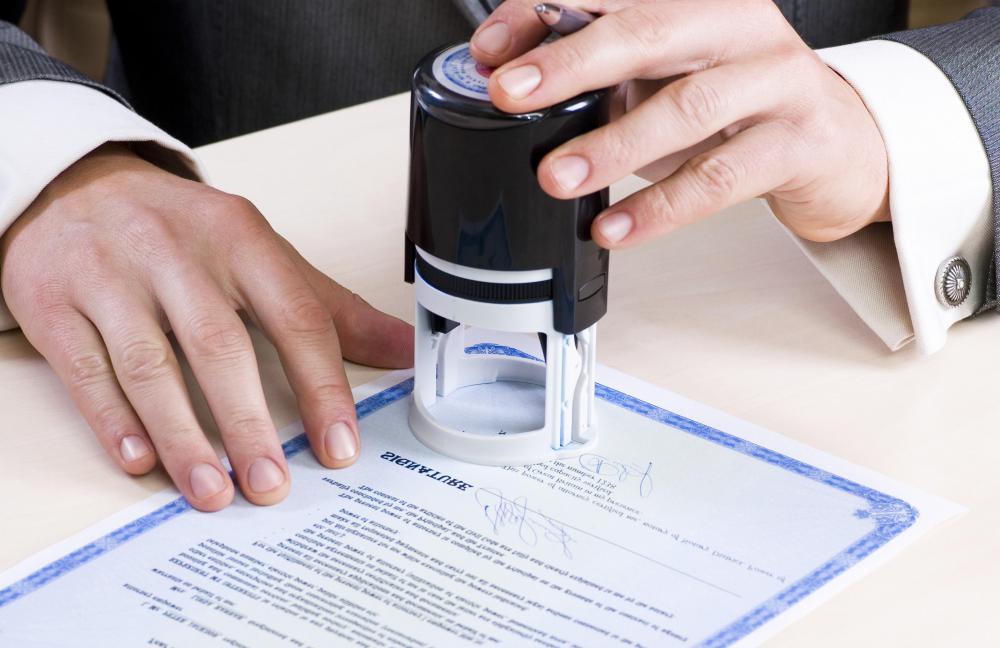At PracticalAdultInsights, we're committed to delivering accurate, trustworthy information. Our expert-authored content is rigorously fact-checked and sourced from credible authorities. Discover how we uphold the highest standards in providing you with reliable knowledge.
What is the Difference Between a Court Reporter and Stenographer?
The terms court reporter and stenographer are often used interchangeably, although there are actually several differences between the two. In general, both occupations provide verbatim transcription services to transform spoken dialog into written legal documents. Unlike a stenographer, a court reporter often performs additional duties beyond transcription and might find work in settings besides a court room. Another difference between the two jobs is that a court reporter requires formal schooling as well as licensing or certification, whereas becoming a stenographer does not.
The main function of both a court reporter and a stenographer is to transcribe, word-for-word, a discussion that is taking place, such as during a meeting or court hearing. The transcripts must be accurate and complete legal records, which can then be provided to the court or the public. In some cases, the dialog is transcribed during real time, while in others, it is recorded using audio equipment and then written out later on. To aid with the transcription, one often uses a stenotype machine to quickly type in shorthand code or a stenomask, which allows one to speak into a microphone and repeat the dialog for recording purposes.

One difference between a court reporter and a stenographer is that a court reporter typically has duties besides transcribing. One might provide closed-captioning translations for the deaf population, offer notary services, or do administrative tasks. Additionally, he might be required to organize and research information from the records, assist attorneys and judges, or administer oaths to witnesses.

Also, in contrast to a stenographer, a court reporter might find employment outside of the courtroom. Many of them work freelance on a case-by-case basis. One might also work for a law firm, government agency, or television network, among other places.
Another difference between the two is the amount of schooling needed. In order to become a court reporter, it generally takes two to four years of formal schooling, and there are many schools and colleges throughout the world that offer the necessary courses. Also, court reporting typically requires regional licensing or certification by passing an official exam.

On the other hand, to become a stenographer, it only takes about six months of training. No licensing is required, although there are places that offer voluntary certification. Since this occupation needs less schooling, one usually earns a lower salary than a court reporter. It is also becoming less common than court reporting as personal assistants are increasingly able to perform the functions of a stenographer.
AS FEATURED ON:
AS FEATURED ON:













Discuss this Article
Post your comments